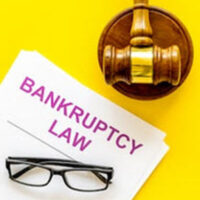Can Alimony Debt Be Discharged in Bankruptcy?

When you are filing for individual bankruptcy, one of your first questions is likely to concern the types of debts that are dischargeable. Whether you are planning to file for Chapter 7 or Chapter 13 bankruptcy, it is important to be sure that the debts you are seeking to have discharged are actually dischargeable. While most types of consumer debt are dischargeable according to the US Bankruptcy Code — for example, most medical debt, credit card debt, and personal loan debt are dischargeable — certain types of debt are classified as “exceptions to discharge.” One particular exception to discharge listed in the US Bankruptcy Code is “for a domestic support obligation.”
Since the US Bankruptcy Code does not mention alimony anywhere, which is the language Florida uses to refer to spousal payments after a divorce, you may be wondering if you can have alimony debt discharged in a bankruptcy case. In short, the answer is no, but our West Palm Beach bankruptcy attorneys can explain in more detail.
Understanding Domestic Support Obligations and Exceptions to Discharge
In general (although there are certain exceptions to the exception), any type of debt that is defined as an exception to discharge will not be a dischargeable debt in a bankruptcy case. What types of debts are included within the phrase “domestic support obligation”? This term essentially refers to any type of debt for a family support obligation, including alimony (or spousal support or spousal maintenance) or child support. The US Bankruptcy Code defines it as follows:
“The term ‘domestic support obligation’ means a debt . . . owed to or recoverable by a spouse, former spouse, or child of the debtor or such child’s parent, legal guardian, or responsive relative; or governmental unit . . . in the nature of alimony, maintenance, or support . . . of such spouse, former spouse, or child of the debtor or such child’s parent.”
In short, if you have debt for unpaid alimony or child support, you will not be able to have that debt discharged in your bankruptcy case.
Exceptions to the “Exception to Discharge” Law
Are there any exceptions? To be clear, there are certain exceptions to the types of debt identified as “exceptions to discharge,” but you should not expect alimony to fall into this category of an exception to the exception.
The most common exception is student loan debt. While educational debt is identified as an exception to discharge, it is important for debtors to know that they can have their student loan discharged if they go through the extra step of proving that continuing to pay their loans would constitute an undue hardship. The US Department of Justice recently made this process easier, as well.
Contact a West Palm Beach Bankruptcy Attorney
Bankruptcy law is complex, and there are several exceptions to discharge that you should know about if you are planning to file for bankruptcy. If you have any questions, you should get in touch with one of the experienced West Palm Beach bankruptcy lawyers at Kelley, Fulton, Kaplan & Eller to learn more. We regularly represent clients in individual and business bankruptcy cases, and we can speak with you today about moving forward with a bankruptcy case.
Source:
law.cornell.edu/uscode/text/11/523



